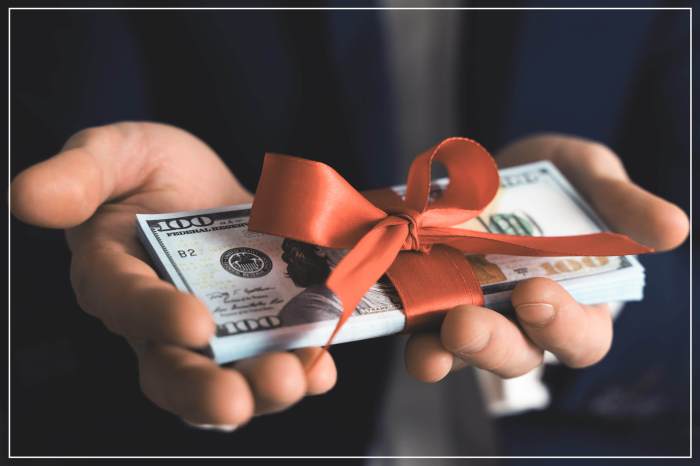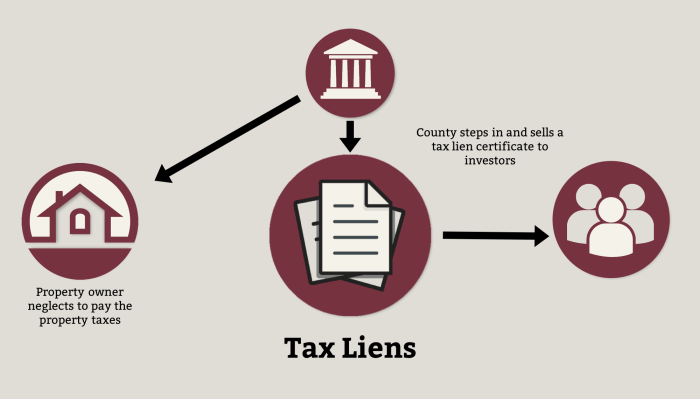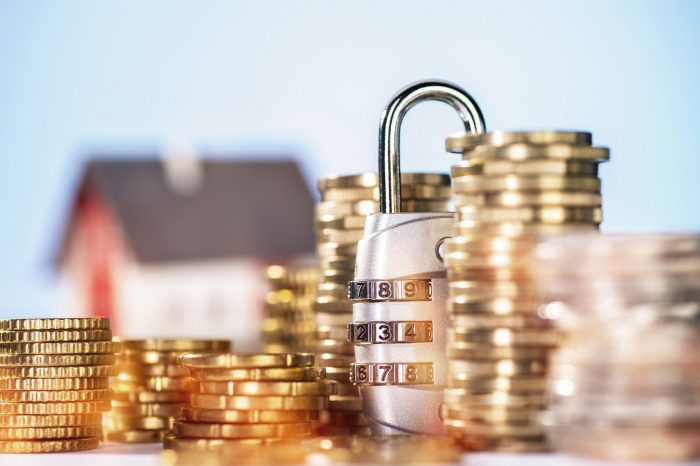Is Silver a Good Investment in 2024?
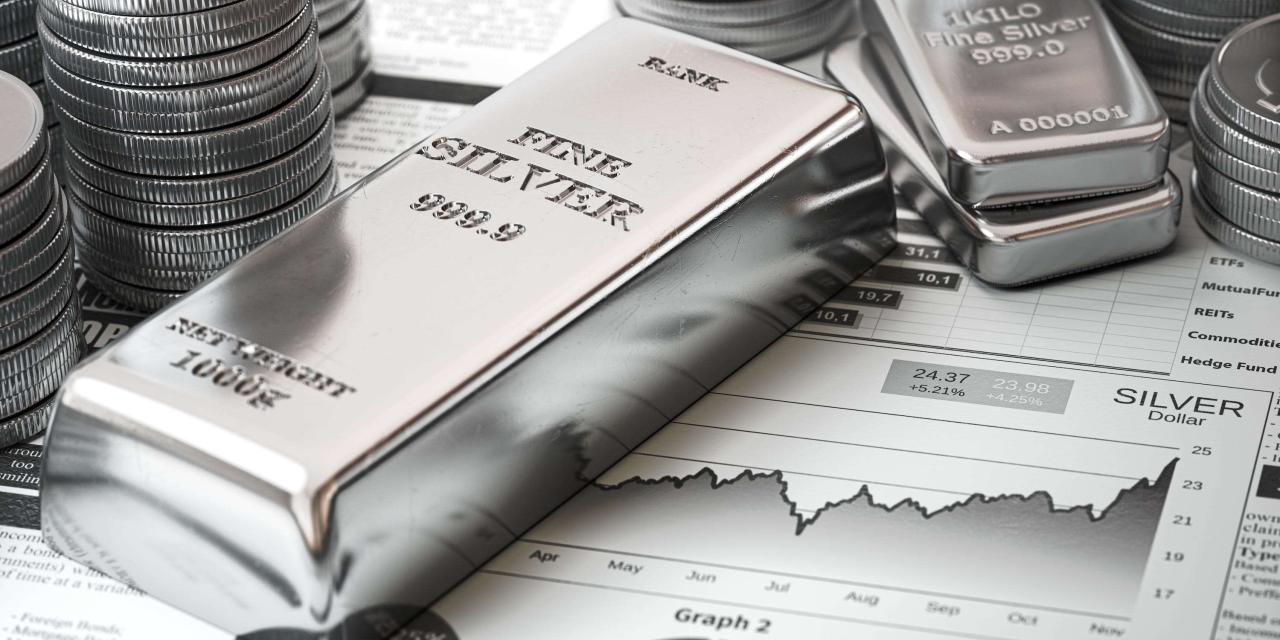
Is silver a good investment in 2024? This question has become increasingly relevant as investors seek alternative assets to navigate a volatile economic landscape. Silver, a precious metal with a rich history and diverse applications, has long captivated investors, but its future prospects in 2024 are a subject of debate.
From its historical performance as an inflation hedge and safe haven asset to its role in modern technology and industrial applications, silver presents a compelling investment case. However, factors like global economic conditions, supply chain disruptions, and environmental concerns must be carefully considered before making any investment decisions.
Silver’s Historical Performance
Silver has a rich history as a precious metal, and its price has fluctuated significantly over time. Understanding its historical performance can provide valuable insights into its potential as an investment.
Comparison with Gold
Silver’s price movements often correlate with those of gold, but there are also periods of divergence. Generally, silver tends to be more volatile than gold, meaning its price swings can be more dramatic. This volatility can be attributed to factors such as its industrial applications and its status as a smaller market compared to gold.
Historical Events Influencing Silver Prices
Several historical events have significantly impacted silver prices. These include:
- Economic Crises: During periods of economic uncertainty, investors often seek safe haven assets like silver, leading to price increases. The 2008 financial crisis is a prime example, where silver prices surged significantly.
- Technological Advancements: Silver’s industrial applications, particularly in electronics and solar energy, have influenced its price. Technological advancements that increase demand for silver can drive its price higher.
- Industrial Demand: Silver’s use in various industries, such as photography, jewelry, and medical devices, can impact its price. Changes in demand from these sectors can affect silver’s overall market value.
Silver as an Inflation Hedge
Historically, silver has been considered a potential inflation hedge. When inflation rises, the purchasing power of fiat currencies decreases, and investors often seek assets that can preserve their wealth. Silver’s historical performance as an inflation hedge has been mixed.
Some studies suggest that silver has outperformed inflation in certain periods, particularly during periods of high inflation.
However, it’s important to note that silver’s performance as an inflation hedge can vary depending on factors such as economic conditions, market sentiment, and the specific time period being considered.
Current Economic Landscape and Silver’s Role
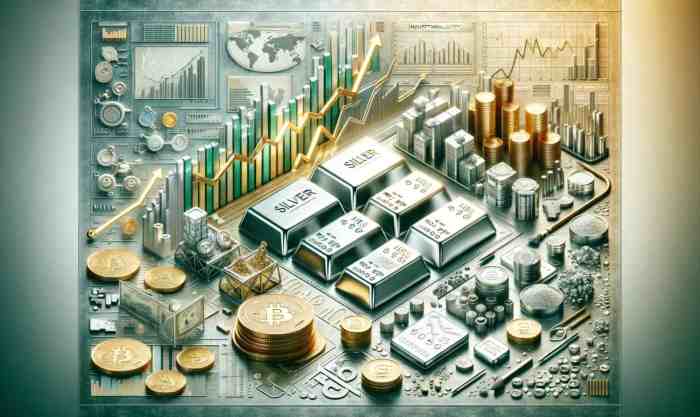
The current global economic landscape is a complex mix of challenges and opportunities, influencing the investment appeal of silver. Understanding these factors is crucial for making informed investment decisions.
Inflation and Interest Rates
Inflation and interest rates play a significant role in determining silver demand. High inflation erodes purchasing power, prompting investors to seek assets that hold their value. Silver, historically considered a hedge against inflation, can benefit from such scenarios. However, rising interest rates can dampen silver demand, as investors may favor higher-yielding assets.
A higher interest rate environment typically leads to a stronger US dollar, which can impact the price of silver as it is priced in dollars.
Geopolitical Tensions and Supply Chain Disruptions
Geopolitical tensions and supply chain disruptions can create uncertainty and volatility in the silver market. These factors can lead to increased demand for safe-haven assets, including silver, as investors seek to protect their wealth.
- For example, the ongoing Russia-Ukraine conflict has disrupted global supply chains and led to concerns about energy security, potentially boosting demand for silver used in solar panels and other renewable energy technologies.
- Furthermore, geopolitical tensions can lead to increased government spending on defense and infrastructure projects, which can also benefit silver demand.
Impact of the Global Economic Outlook on Silver Demand
The global economic outlook is a key factor influencing silver demand. A robust global economy with strong industrial activity can boost silver demand as it is used in various industrial applications, such as electronics, automobiles, and solar panels. Conversely, a slowdown in global economic growth can dampen silver demand.
- The International Monetary Fund (IMF) projects global economic growth to slow to 2.9% in 2023, down from 3.4% in 2022. This slowdown could impact silver demand, especially in sectors like manufacturing and construction.
- However, the IMF also forecasts a pickup in global growth to 3.1% in 2024. This could create opportunities for silver as industrial activity rebounds.
Silver’s Industrial Applications and Demand: Is Silver A Good Investment In 2024
Silver’s industrial applications are a significant driver of demand, and the metal plays a crucial role in various sectors, contributing to technological advancements and economic growth.
Silver’s Industrial Applications
Silver’s unique properties, including high electrical conductivity, thermal conductivity, and resistance to corrosion, make it indispensable in various industries.
- Electronics: Silver is a vital component in electronics, used in printed circuit boards, connectors, and conductive inks. Its high conductivity ensures efficient signal transmission and heat dissipation. The increasing demand for smartphones, laptops, and other electronic devices drives the need for silver in electronics manufacturing.
- Solar Energy: Silver is used in photovoltaic cells, where it acts as an electrical contact, facilitating the conversion of sunlight into electricity. The growing demand for renewable energy sources, particularly solar power, is fueling silver demand in this sector.
- Medical Devices: Silver’s antimicrobial properties make it suitable for medical applications. It is used in wound dressings, catheters, and surgical instruments to prevent infections. The rising healthcare expenditure and the growing awareness of antimicrobial resistance are driving demand for silver in medical devices.
- Automotive: Silver is used in various automotive components, including engine parts, sensors, and electrical connectors. The increasing demand for fuel-efficient and electric vehicles is expected to drive silver demand in the automotive industry.
- Other Industries: Silver is also used in various other industries, including photography, jewelry, and mirrors. Its unique properties make it a valuable material in these sectors.
Technological Advancements and Silver Demand
Technological advancements are closely intertwined with silver demand. As technology evolves, the demand for silver in various applications is likely to increase.
- Miniaturization: The miniaturization of electronic devices requires silver’s high conductivity and ability to be used in fine lines and complex designs. As devices become smaller and more powerful, the demand for silver in electronics is expected to rise.
- Renewable Energy: The transition to renewable energy sources, particularly solar power, is expected to drive significant demand for silver in photovoltaic cells. The increasing adoption of solar energy globally will require large quantities of silver to meet the growing demand for solar panels.
- Internet of Things (IoT): The growth of the IoT is expected to drive demand for silver in various applications, including sensors, actuators, and communication devices. As more devices become interconnected, the need for silver in these applications will increase.
- 5G Technology: The rollout of 5G networks is expected to increase demand for silver in telecommunications infrastructure. The higher frequencies used in 5G require silver’s superior conductivity to ensure efficient signal transmission.
Silver Demand from Different Sectors
Silver demand is influenced by various factors, including economic growth, technological advancements, and consumer preferences.
- Electronics: The electronics sector is the largest consumer of silver, accounting for about 50% of global demand. The increasing demand for smartphones, computers, and other electronic devices is a major driver of silver demand in this sector.
- Photovoltaic Cells: The solar energy industry is a growing consumer of silver, with demand expected to increase significantly in the coming years. Silver is used as an electrical contact in photovoltaic cells, facilitating the conversion of sunlight into electricity. The rising adoption of solar energy globally is expected to drive silver demand in this sector.
- Jewelry: Silver is a popular metal for jewelry, accounting for a significant portion of global demand. Consumer preferences and economic conditions influence demand for silver jewelry.
- Industrial Applications: Other industrial applications, including medical devices, automotive components, and mirrors, contribute to silver demand. These applications are expected to grow as technology advances and new uses for silver are discovered.
Silver Supply and Mining Dynamics
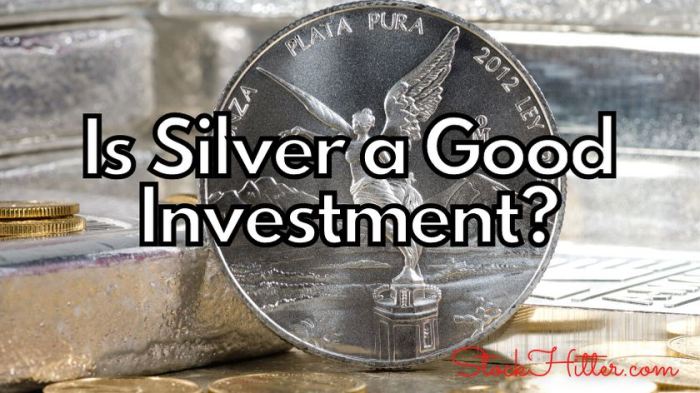
Silver supply is primarily driven by mining, with a significant portion also coming from recycled sources. Understanding the global silver mining landscape, its challenges, and opportunities is crucial for assessing the future of silver investment.
Global Silver Mining Landscape
The global silver mining landscape is diverse, with several countries contributing significantly to the overall production. The following table Artikels the top silver-producing countries:
| Country | Estimated Silver Production (2022) (Metric Tons) |
|---|---|
| Mexico | 5,100 |
| Peru | 4,400 |
| China | 3,800 |
| Russia | 2,400 |
| Australia | 2,300 |
| Chile | 1,800 |
| Poland | 1,500 |
| Canada | 1,400 |
| United States | 1,100 |
These countries contribute a significant portion of the global silver supply, but the mining landscape is constantly evolving due to factors such as technological advancements, environmental concerns, and geopolitical shifts.
Challenges and Opportunities in Silver Mining
Silver mining faces several challenges, including:
- Environmental Concerns: Silver mining can have significant environmental impacts, including water pollution, habitat destruction, and greenhouse gas emissions. This has led to increased scrutiny and regulations, making it more expensive and complex to operate.
- Depleting Ore Grades: As easily accessible silver deposits are depleted, mining companies are forced to extract silver from lower-grade ores, which increases production costs and complexity.
- Labor Shortages: The mining industry faces a global shortage of skilled labor, particularly in remote locations. This can lead to higher wages and operational difficulties.
- Geopolitical Risks: Mining operations can be affected by political instability, regulatory changes, and trade disputes, which can disrupt supply chains and increase uncertainty.
Despite these challenges, there are also opportunities in silver mining:
- Technological Advancements: Technological advancements in exploration, extraction, and processing can improve efficiency, reduce costs, and minimize environmental impact. This includes advancements in robotics, artificial intelligence, and data analytics.
- Growing Demand: The increasing demand for silver in various industries, including solar energy, electronics, and healthcare, is driving exploration and investment in new silver mining projects.
- Recycling: Recycling silver from electronic waste and other sources is becoming increasingly important, contributing to a more sustainable supply chain.
Impact of New Silver Discoveries and Mining Projects
New silver discoveries and mining projects have the potential to significantly impact supply. For example, the discovery of new, high-grade silver deposits in remote areas could increase production and reduce reliance on existing mines. However, the development of new mines is often complex and time-consuming, requiring significant investment and regulatory approvals.
The impact of new silver discoveries and mining projects on supply depends on several factors, including:
- Ore Grade: The grade of silver ore determines the amount of silver that can be extracted from a given amount of rock. Higher-grade ores are more profitable and can have a greater impact on supply.
- Location: The location of a new mine influences its feasibility and cost. Mines in remote areas may face higher transportation and infrastructure costs, which can impact their profitability.
- Regulatory Environment: The regulatory environment surrounding mining can influence the feasibility and timeline of new projects. Stricter environmental regulations and permitting processes can increase costs and delay development.
Overall, the global silver mining landscape is dynamic and subject to various influences. Understanding these factors is essential for assessing the potential of silver as an investment.
Investing in Silver

Investing in silver offers a variety of options, each with its own set of advantages and disadvantages. Choosing the right approach depends on your investment goals, risk tolerance, and financial resources.
Different Ways to Invest in Silver, Is silver a good investment in 2024
There are several ways to invest in silver, each with its own set of advantages and disadvantages.
- Physical Bullion: Purchasing physical silver, such as coins, bars, or rounds, is a direct way to own the metal. It provides tangible ownership and is often seen as a safe haven asset.
- Exchange-Traded Funds (ETFs): Silver ETFs track the price of silver and allow investors to gain exposure to the metal without physically owning it. They are traded on stock exchanges and offer liquidity and diversification.
- Silver Mining Stocks: Investing in companies that mine and produce silver can provide exposure to the metal’s price and potential growth in the industry. However, this option comes with higher risk as it is tied to the performance of individual companies.
Advantages and Disadvantages of Investment Options
- Physical Bullion:
- Advantages:
- Tangible ownership
- Safe haven asset
- Potential for price appreciation
- Disadvantages:
- Storage costs and security risks
- Limited liquidity
- Potential for theft or damage
- Advantages:
- Exchange-Traded Funds (ETFs):
- Advantages:
- Liquidity and diversification
- Lower storage and security costs
- Easy to buy and sell
- Disadvantages:
- Exposure to ETF-specific risks, such as management fees and tracking errors
- May not offer the same price appreciation as physical silver
- Advantages:
- Silver Mining Stocks:
- Advantages:
- Potential for higher returns than physical silver or ETFs
- Exposure to growth in the silver mining industry
- Disadvantages:
- Higher risk due to company-specific factors
- Potential for volatility and price fluctuations
- May be subject to regulatory changes and environmental concerns
- Advantages:
Strategies for Investing in Silver
- Dollar-Cost Averaging: Regularly investing a fixed amount of money in silver, regardless of its price, can help mitigate risk and reduce the impact of market fluctuations.
- Diversification: Spreading investments across different silver investment options, such as physical bullion, ETFs, and mining stocks, can help reduce overall risk.
- Long-Term Investment: Silver is often considered a long-term investment, as its price can fluctuate significantly in the short term. A long-term perspective can help investors ride out market volatility and potentially benefit from long-term price appreciation.
In conclusion, whether silver is a good investment in 2024 depends on individual investment goals, risk tolerance, and market outlook. While silver offers potential for growth and diversification, it’s essential to conduct thorough research, understand the associated risks, and develop a well-informed investment strategy.
User Queries
What are the main factors driving silver prices?
Silver prices are influenced by a complex interplay of factors, including global economic conditions, industrial demand, investment sentiment, and supply dynamics.
How does silver compare to gold as an investment?
Both silver and gold are considered precious metals and can serve as inflation hedges and safe haven assets. However, silver tends to be more volatile than gold, with a higher correlation to industrial demand.
What are the risks associated with investing in silver?
Investing in silver carries risks such as price volatility, storage costs, and potential for manipulation.
While the future of silver as an investment in 2024 remains uncertain, exploring alternative avenues like real estate can offer diversification. Consider investing in multifamily investment properties , which can provide consistent rental income and potential appreciation. This approach can help balance your portfolio and potentially offset any volatility in the silver market.
While silver’s performance in 2024 remains uncertain, considering alternative investments like real estate could be a wise move. Miami, FL, is a particularly hot market for investment property , with strong rental demand and potential for appreciation. However, the decision ultimately hinges on your individual risk tolerance and investment goals.
Whether silver is a good investment in 2024 depends on a variety of factors, including economic conditions and your individual investment goals. If you’re looking for a more tangible asset, you might consider real estate, and dallas investment properties for sale could be a good option. Of course, any investment carries risks, so it’s important to do your research and consult with a financial advisor before making any decisions.

